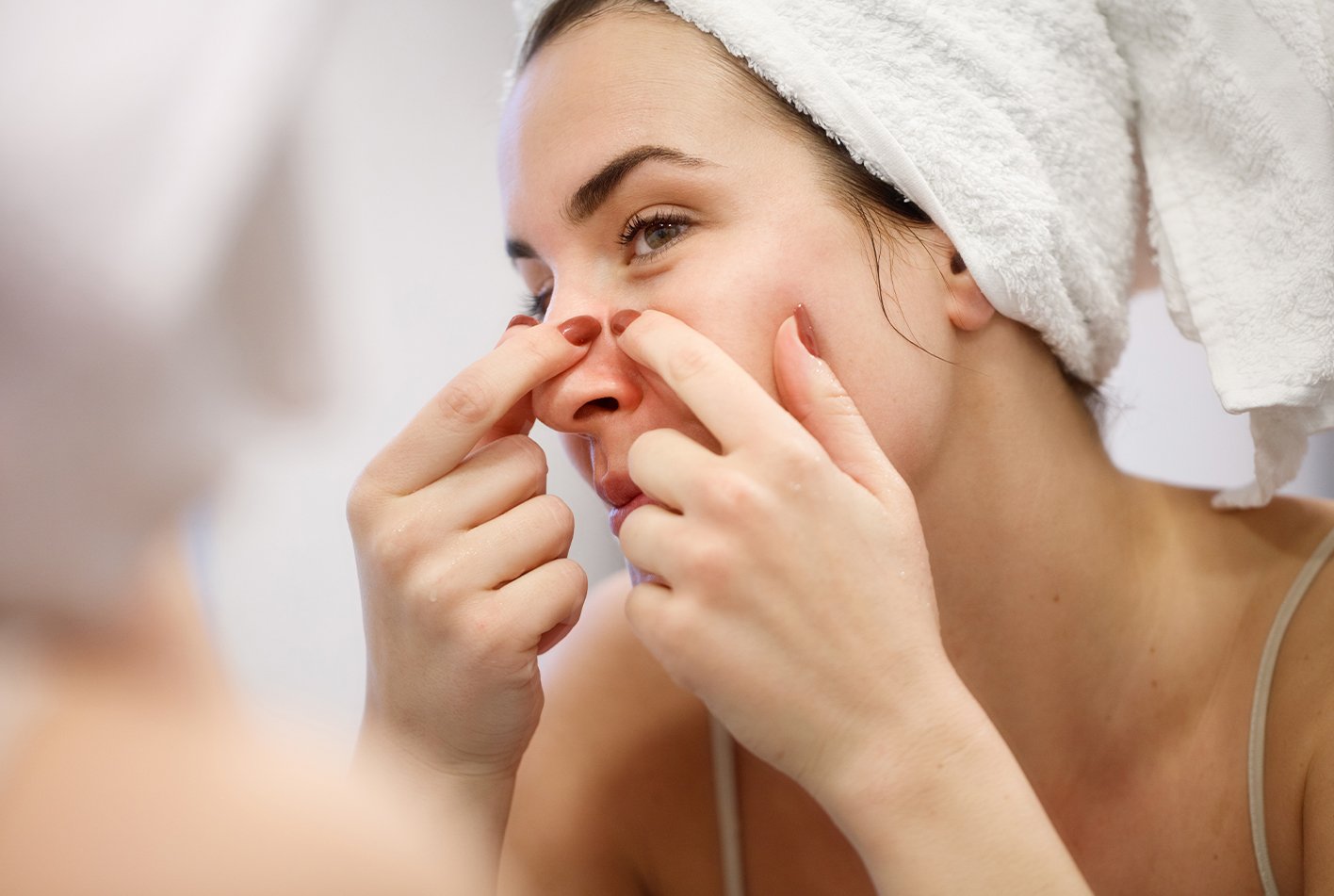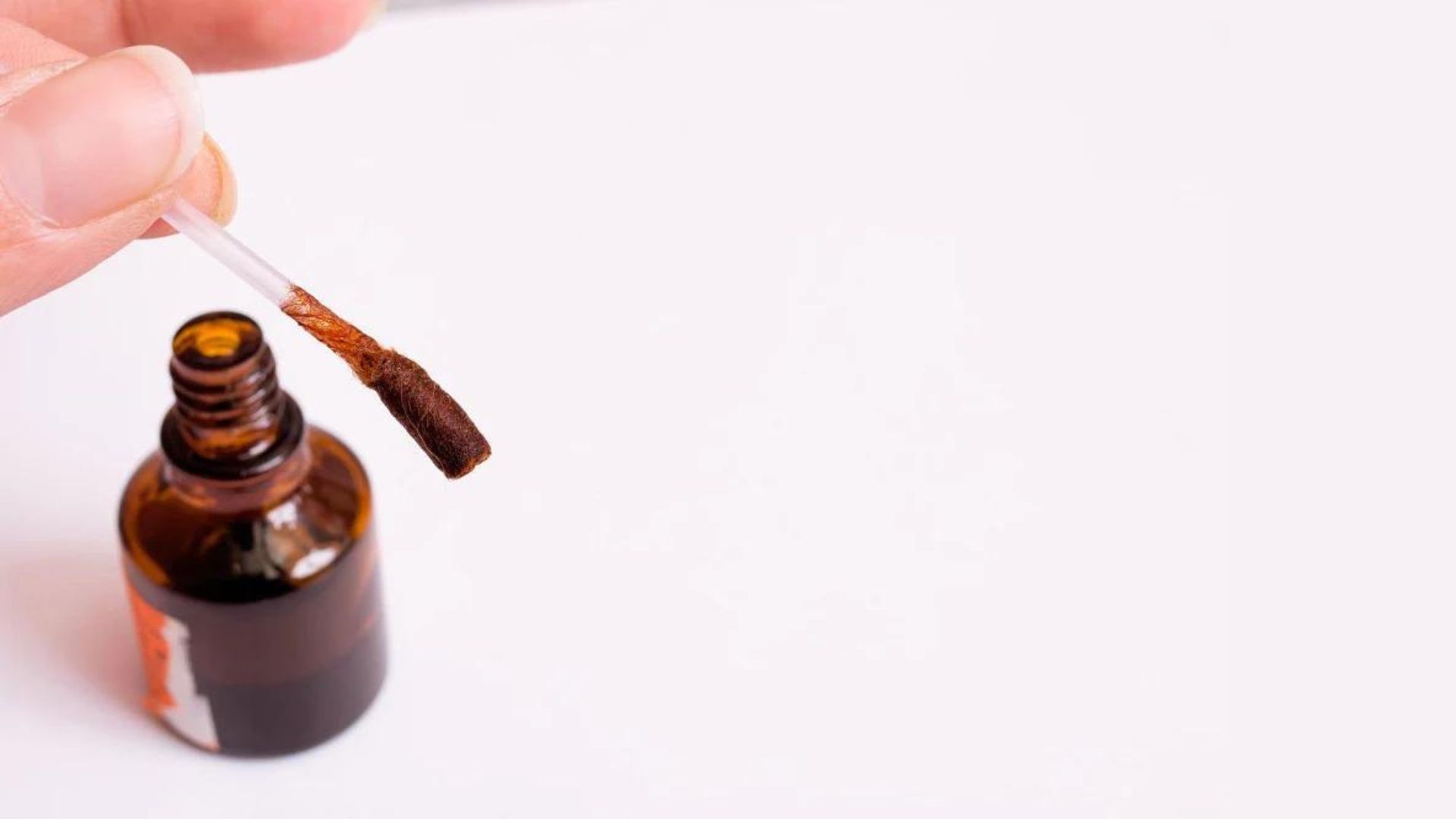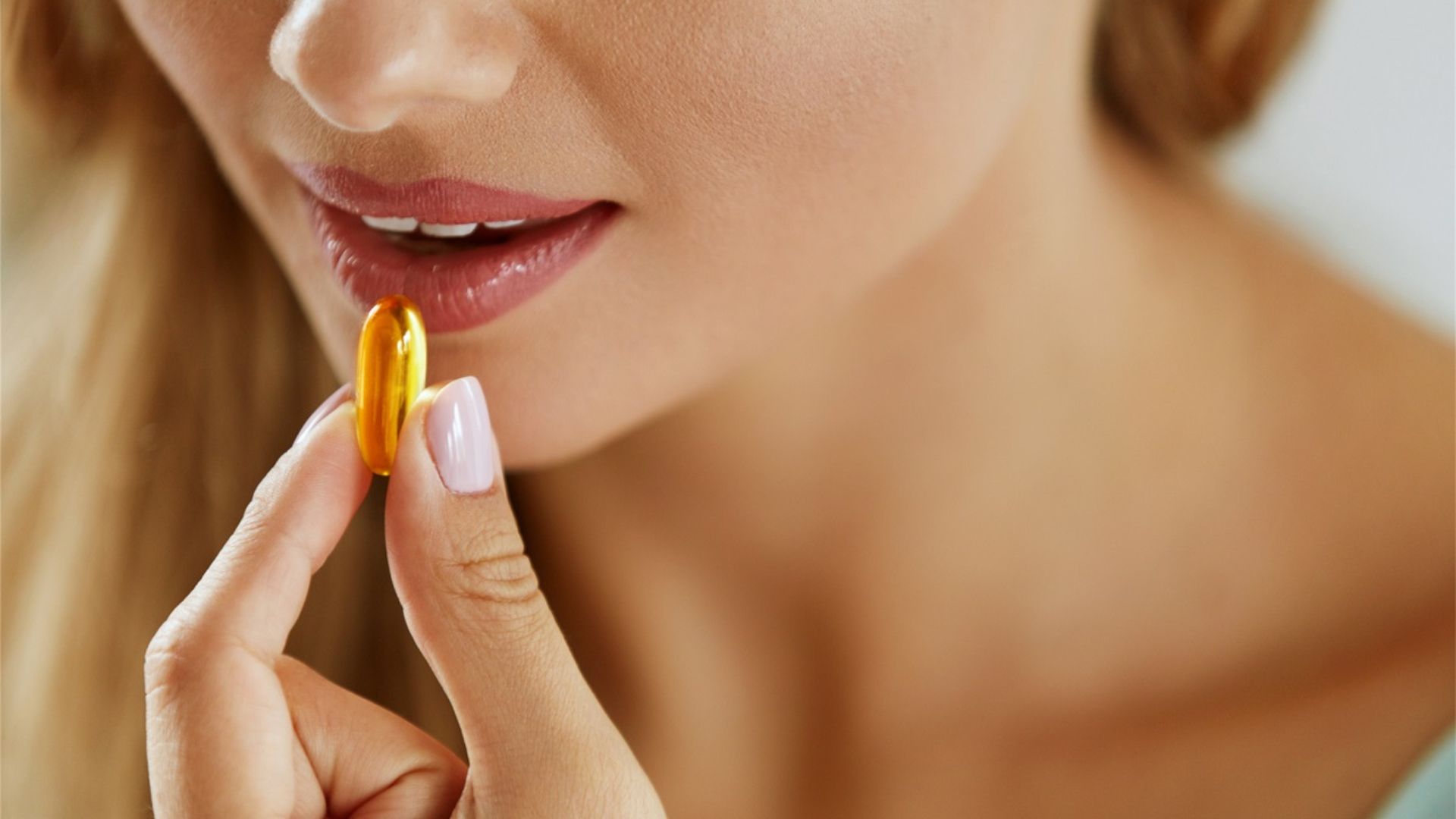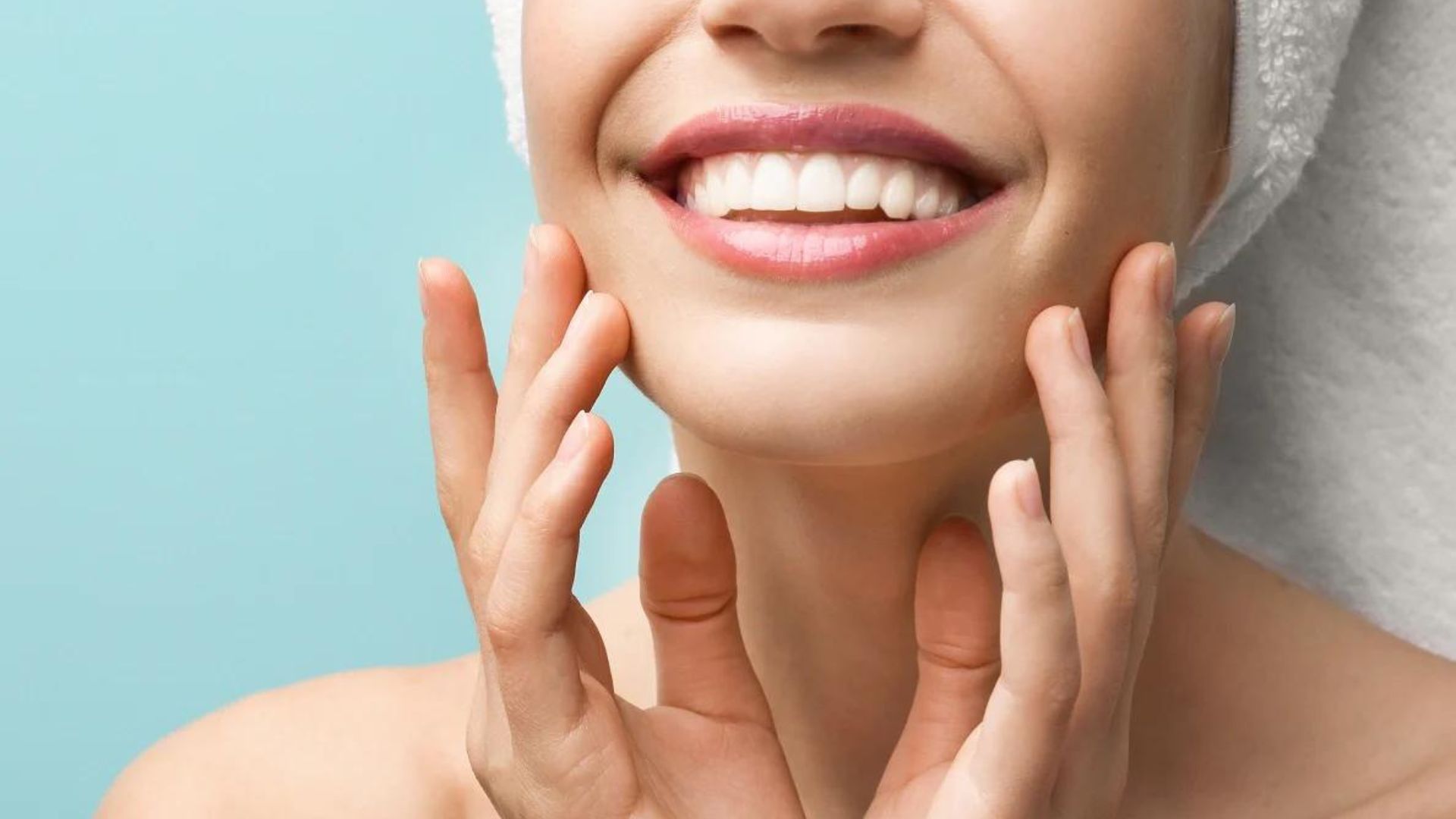How Does Iodine Help Pimples - Is It Safe
Does iodine help pimples? That's the question on many people's minds when it comes to skincare. Iodine, a chemical element found in various forms, has been a subject of interest in the world of acne treatment.
Author:Suleman ShahReviewer:Han JuJan 19, 202428.3K Shares858.9K Views

Does iodine help pimples? This age-old question has lingered in the realm of skincare discussions, sparking curiosity and debate among individuals seeking effective remedies for acne.
As you delve into the intricacies of iodine and its potential impact on pimples, it is essential to navigate through the various perspectives, scientific findings, and anecdotal evidence surrounding this topic. The journey to uncover the truth about iodine and its role in addressing acne concerns will unfold in the subsequent sections.
Understanding Iodine
There are a few dietary sources of the mineral iodine. To produce thyroid hormones, the body needs iodine. The metabolism and other vital processes are under the control of these hormones.
Thyroid hormones are essential for healthy skeletal and neurological development in the fetusand infant. Iodine is essential for everyone, but notably for newborns and pregnant women.
What Foods Provide Iodine?
Some foods contain iodine naturally, and iodine is also added to salt and sold under that name. The following are some examples of foods that contain sufficient levels of iodine to meet dietary recommendations.
- Foods high in iodine content include seafood, including fish (especially cod and tuna), seaweed, and shrimp.
- Iodine may also be found in dairy products (including milk, yogurt, and cheese) and eggs.
- Iodized salt is available in many nations, including the United States.
Iodized salt is seldom included in processed goods like canned soup. Furthermore, most specialty salts are not iodized; this includes sea salt, kosher salt, Himalayan salt, and fleur de sel. The presence or absence of iodide in table salt will be noted on product labels.
What Kinds Of Iodine Dietary Supplements Are Available?
Potassium iodide and sodium iodide are two common forms of iodine found in dietary supplements. Iodine is a common component in multivitamins and mineral supplements. Supplements containing iodine from the seaweed kelp are also on the market.
What Happens If You Don’t Get Enough Iodine?
In North America, iodine deficiency is quite rare. Lack of iodine in the diet prevents the body from producing adequate thyroid hormone. This may lead to a number of issues.
Fetal damage from severe iodine insufficiency includes delayed sexual maturation, intellectual impairment, and short stature.
Iodine shortage, even if not severe, may reduce IQ in newborns and children and impair adult cognitive function. An enlarged thyroid gland, known medically as a goiter, is often the first symptom of iodine insufficiency.
Understanding Acne - A Complex Skin Issue
When hormones, skin oils, and bacteria all work together, it leads to inflammationof hair follicles (the pores in the skin where hair develops). Acne manifests itself as a wide variety of irregularities (lesions) on the skin. They range in size and depth, with some puncturing the skin more deeply than others.
- Dead skin cells, germs, and dried sebum restrict the hair follicles, leading to acne.
- Acne is a common skin condition characterized by the formation of bumps on the face, chest, shoulders, and back. Acne may take the shape of a blackhead, a whitehead, a pimple, a cyst, or even an abscess.
- Acne is diagnosed by observing the patient's skin.
- Topical antibiotics and skin preparations are used to treat mild acne, oral antibiotics are used to treat moderate acne and oral isotretinoin is used to treat severe acne.
Genetics And Acne - Unraveling The Inherited Predisposition
Acne commonly runs in our genes. Researchers believe acne susceptibility is genetic, with a family historyof acne increasing the likelihood of comparable skin issues. Genetics contribute to increased sebum production, blocked pores, and inflammatory reactions, which are essential to acne development.
Understanding the genetic relationship to acne illuminates its causes and emphasizes the need for individualized skincare. Personalized therapies based on genetic predisposition may be more effective and focused than generic remedies, addressing each person's skin requirements.
Hormones And Acne
Acne formation is influenced by hormones, especially during puberty, menstruation, and pregnancy. Both men and women generate androgens, which stimulate the sebaceous glands to create excess sebum and cause acne. Understanding hormonal changes throughout various lifestages helps control acne more nuancedly.
Oral contraceptives are often given to treat acne and hormonal abnormalities. Note that hormonal impacts on acne are highly individualized, necessitating specific therapies that take into account each person's hormonal makeup.
Lifestyle Factors And Acne
Lifestyle factors affect acne development beyond genetics and hormones. The complex network of causes of acne includes diet, stress, and skincare. Abundant-glycemic diets, which are abundant in sugary and processed foods, may worsen acne by affecting insulin levels and causing inflammation.
Stress, a constant in contemporary life, may also cause hormonal changes that cause acne. Lifestyle issues must be addressed comprehensively with other acne treatments. Healthy eating, relaxation, and a regular skincare program may help clean skin.
Role Of Diet In Acne Development
Acne, the bane of many individuals, has long been associated with hormonal fluctuations and genetics. However, the role of diet in the development and exacerbation of acne has gained considerable attention in recent years.
High-Glycemic Foods - The Sugar And Acne Affair
One significant aspect of the diet-acne nexus revolves around the glycemic index of foods. High-glycemic foods, laden with sugars and refined carbohydrates, can prompt a surge in blood sugar levels.
This spike triggers an insulin response, leading to increased sebum production and inflammation, both key players in the acne development process. Understanding the impact of high-glycemic foods on skin healthis crucial for individuals seeking dietary strategies to manage acne effectively.
Dairy Dilemma - Exploring The Milk-Acne Connection
The link between dairy consumption and acne has been a subject of considerable research. Some studies suggest that specific components in dairy, such as hormones and growth factors, may influence acne development.
Understanding this dairy dilemma involves recognizing the individual variability in responses to dairy products. While some individuals may experience acne flare-ups in correlation with dairy intake, others may not show any discernible impact.
Omega-3 Fatty Acids - The Anti-Inflammatory Allies
In the pursuit of clearer skin, the inclusion of omega-3 fatty acids in the diet emerges as a potential ally. These essential fatty acids, found in abundance in fatty fish, flaxseeds, and walnuts, exhibit anti-inflammatory properties.
Inflammation is a key contributor to acne, and incorporating omega-3-rich foods may help mitigate the inflammatory response, contributing to a reduction in acne severity.
Antioxidant-Rich Foods - Fighting Free Radicals
Antioxidants, present in fruits and vegetables, play a crucial role in combatting free radicals that can contribute to skin issues, including acne. Vitamins A, C, and E, along with minerals like zinc, act as potent antioxidants, promoting skin health and potentially reducing the severity of acne.
Recognizing the importance of an antioxidant-rich diet provides individuals with a holistic approach to skincare that extends beyond topical treatments.
Does Iodine Help Pimples - The Connection
Do Dermatologists recommend Iodine for Acne? Experts do not advocate using povidone-iodine to get rid of pimples and acne since there is little evidence to support its safety or efficacy for this purpose. However, it won't do any damage to the user either.
Dietary Iodine - Beyond The Recommended Intake
Iodized salt, shellfish, and dairy products are the primary sources of iodine, an essential element. Iodine excess may result from exceeding the required daily consumption, which is essential for thyroid function.
Since it stimulates the sebaceous glands to generate more oil, this excess may block pores and cause acne.
Hormonal Influences - Iodine And Thyroid Function
Hormone regulation is centered on the butterfly-shaped thyroid gland in the neck. Iodine excess may impair thyroid function, causing hormonal abnormalities and acne. Thyroid hormone changes may affect skin oil production and pimple risk. Thus, iodine consumption must be balanced.
Topical Iodine - The Double-Edged Sword
Some people use topical iodine to treat pimples due to its antiseptic characteristics. This strategy requires prudence. Due to skin sensitivity, applying iodine directly to susceptible regions may cause irritation, redness, or chemical burns. The delicate balance between iodine's antibacterial properties and skin-negative effects should be examined.
Individual Variability - Not A Universal Solution
The connection between iodine and pimples is not uniform across all individuals. Factors such as genetics, overall health, and skin type contribute to the variability in how the body responds to iodine.
While some may experience acne flare-ups due to excess iodine, others may not show any discernible impact. Understanding this individual variability is crucial for tailoring acne management strategies that consider the specific needs of each person.
Benefits Of Iodine For The Skin
Iodine has a critical role in regulating your thyroid gland's activity. Iodine is essential for the thyroid to create hormones necessary for metabolism, as well as for normal bone and brain development. Iodine shortage may lead to many health concerns and may also influence your skin and hair.
If you don't get enough iodine, your thyroid may make do with fluorine and chlorine. However, these two halogens are poisonous to your cells and may disrupt your cell function. Iodine is essential for skin health, but too much of it may be harmful. Here are some skin signs that may indicate that you are getting too much or too little iodine in your diet.
Dry And Flaky Skin
About 77% of those with low thyroid hormone levels also report having dry skin, according to the research. Dry, flaky skin is a common symptom of iodine shortage, which may slow the body's ability to produce new skin cells.
Less Sweating
Sweating out toxins is one method of detoxification aided by iodine. People with low iodine levels may sweat less than those with normal thyroid hormone levels because thyroid hormones play a role in controlling perspiration.
Your skin stays supple and moisturized because you sweat. Not sweating enough might prevent detoxification and lead to skin dryness.
Skin Hydration
Adequate dietary iodine consumption aids in controlling sweating and maintaining supple skin. Make sure you're getting the right amount of iodine, however. Too much iodine in your system might lead to the opposite consequence.
Body Detoxification
Iodine plays a critical function in detoxifying your body from halides like fluoride, bromide & chlorine. Cysts, fibroids in various body regions, fibrocystic breast disease, and reproductive-organ malignancies are only some of the ailments that halides have been linked to. Iodine helps keep you healthy by getting rid of the halides that might cause such conditions.
Iodine is helpful for cleansing the body of cadmium, lead, mercury, and aluminum, among other heavy metals. With the help of iodine, your body can eliminate these poisons.
Skin Healing
Being a natural antiseptic, iodine may be used on wounds and scars to speed up the healing process. It helps mend damaged skin, speeds up the healing process for scars and blemishes, and prevents them from becoming infected.
Skin Rejuvenation
Iodine is beneficial for your hair, nails, and skin as well; the lowest layers of your skin benefit from improved cellular activity and regeneration as a result. Iodine may give you a glowing complexion, lustrous hair, and strong nails since it rejuvenates the skin from the inside out.
Hair growth and follicle health are both enhanced by adequate iodine intake. Therefore, deficiencies may cause hair lossor thinning.
Excessive Iodine Consumption Risks And Considerations
Excess iodine in susceptible people slows thyroid hormone production, leading to increased TSH stimulation and goiter. These symptoms are similar to those of iodine insufficiency, which a lack of iodine may cause.
High iodine intakes, such as when iodine is supplied to treat iodine deficiency, may also cause iodine-induced hyperthyroidism. Thyroiditis and thyroid papillary carcinoma have been linked to high iodine consumption in scientific studies.
Acute iodine poisoning is very unusual and generally results from ingesting numerous grams of the substance. Symptoms of acute poisoning include severe pain in the mouth, throat, and stomach, high body temperature, vomiting, diarrhea, a weak pulse, and eventually coma.
Responses to high iodine levels and the amounts needed to have negative consequences differ across individuals. Iodine intakes deemed safe for the general population may have detrimental consequences in certain persons, such as those with autoimmune thyroid disease and iodine shortage.
The FNB has set iodine ULs for foods and supplements. Most individuals won't get too much iodine from their diet or dietary supplements. The potential for harmful consequences increases with exposure over time at levels exceeding the UL. Those using iodine for medicinal purposes are exempt from the ULs; nevertheless, they should still be monitored by a doctor.
Does Iodine Help Pimples - FAQs
What Is Good For Clearing Pimples?
Gently cleanse the area. Dry it with a clean cloth. Dry out the pimple using a spot treatment. Spot treatments include tea tree oil, benzoyl peroxide, and salicylic acid.
Can Applying Iodine Directly On Pimples Be An Effective Remedy?
Direct application of iodine may lead to skin irritation and is not recommended due to potential adverse effects.
How Does Excess Iodine Intake Relate To Acne Development?
Excessive iodine intake has been linked to overstimulation of sebaceous glands, potentially contributing to acne by increasing oil production.
Are There Specific Dietary Sources Of Iodine That May Trigger Acne?
Certain iodine-rich foods, such as seaweed and dairy products, may contribute to acne development in susceptible individuals.
Does The Iodine-acne Connection Vary Based On An Individual's Skin Type?
Yes, the relationship between iodine and acne is influenced by factors like genetics and overall skin health, leading to variations in individual responses.
Conclusion
The complex dynamics of acne, dietary influences, and the iodine-acne relationship reveal the importance of personalized skincare. While diet plays a significant role, and the question of "does iodine help pimples?" lingers, it's clear that there's no universal solution.
Adopting a balanced approach to diet, mindful skincare practices, and acknowledging individual variability is key to achieving and maintaining clear and healthy skin.

Suleman Shah
Author
Suleman Shah is a researcher and freelance writer. As a researcher, he has worked with MNS University of Agriculture, Multan (Pakistan) and Texas A & M University (USA). He regularly writes science articles and blogs for science news website immersse.com and open access publishers OA Publishing London and Scientific Times. He loves to keep himself updated on scientific developments and convert these developments into everyday language to update the readers about the developments in the scientific era. His primary research focus is Plant sciences, and he contributed to this field by publishing his research in scientific journals and presenting his work at many Conferences.
Shah graduated from the University of Agriculture Faisalabad (Pakistan) and started his professional carrier with Jaffer Agro Services and later with the Agriculture Department of the Government of Pakistan. His research interest compelled and attracted him to proceed with his carrier in Plant sciences research. So, he started his Ph.D. in Soil Science at MNS University of Agriculture Multan (Pakistan). Later, he started working as a visiting scholar with Texas A&M University (USA).
Shah’s experience with big Open Excess publishers like Springers, Frontiers, MDPI, etc., testified to his belief in Open Access as a barrier-removing mechanism between researchers and the readers of their research. Shah believes that Open Access is revolutionizing the publication process and benefitting research in all fields.

Han Ju
Reviewer
Hello! I'm Han Ju, the heart behind World Wide Journals. My life is a unique tapestry woven from the threads of news, spirituality, and science, enriched by melodies from my guitar. Raised amidst tales of the ancient and the arcane, I developed a keen eye for the stories that truly matter. Through my work, I seek to bridge the seen with the unseen, marrying the rigor of science with the depth of spirituality.
Each article at World Wide Journals is a piece of this ongoing quest, blending analysis with personal reflection. Whether exploring quantum frontiers or strumming chords under the stars, my aim is to inspire and provoke thought, inviting you into a world where every discovery is a note in the grand symphony of existence.
Welcome aboard this journey of insight and exploration, where curiosity leads and music guides.
Latest Articles
Popular Articles




